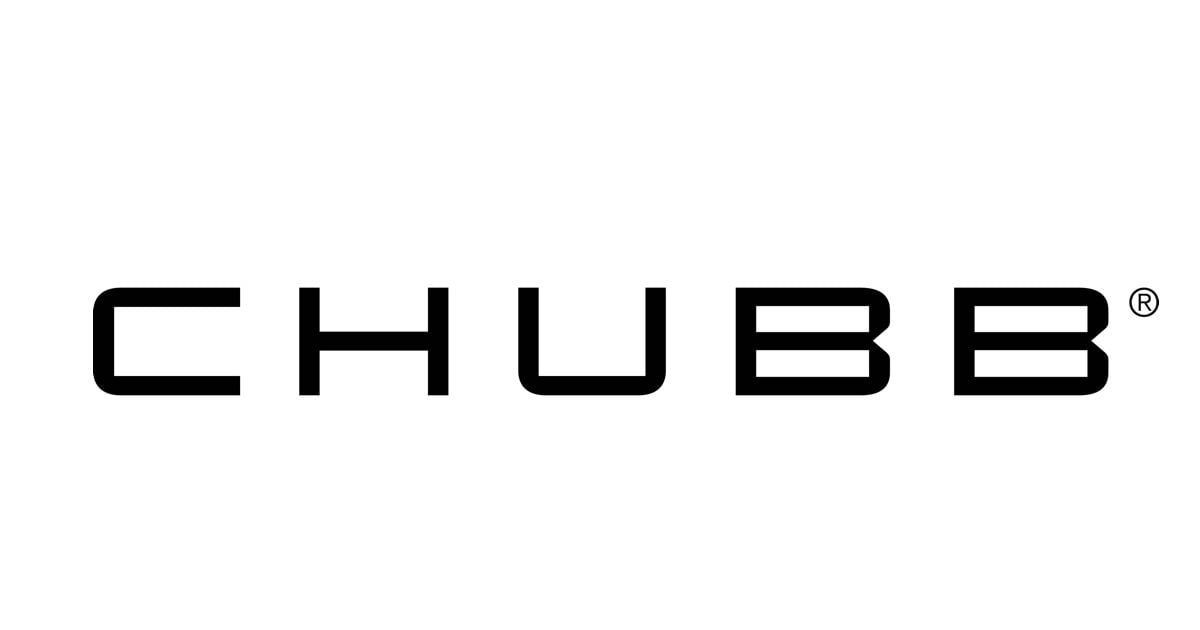Key takeaways
Chubb, USAA and Amica received the highest ratings in our analysis of home insurers in Florida.
State Farm is the best cheap insurer in Florida, with a star rating of 4.7 and an average annual premium of $2,520.
Chubb, USAA and Amica are among the best home insurance companies in Florida, according to our analysis.
We analyzed data from insurance companies across the state to help you find the best home insurance in Florida. Below are the insurers that earned 4.3 stars or more in our analysis.
Rates are based on a sample homeowner with good credit, $300,000 of dwelling coverage, $300,000 of liability coverage and a $1,000 deductible.
Company | NerdWallet star rating | Average annual rate |
|---|---|---|
Not available | ||
Not available | ||
Not available | ||
$2,520 | ||
Not available | ||
USAA* | Not available | |
*USAA membership is open only to active military, veterans, some federal employees and their families. | ||
Why does Florida home insurance cost so much?
Florida home insurance rates have shot up in recent years due to frequent natural disasters and litigation expenses. In the face of heavy losses, many insurers raised rates, stopped selling policies in Florida or simply went out of business. But the market may be starting to recover. Read more below.
» MORE: The best homeowners insurance
Get home insurance quotes in minutes
Answer a few questions to see custom quotes and find the right policy for you.The best home insurance companies in Florida
Here's more information about the best homeowners insurance companies in Florida.
Note: Some insurance companies included in this article may have made changes in their underwriting practices and no longer issue new policies in your state. Even if an insurer serves your state, it may not write policies for all homes in all areas.

Chubb
- Far fewer consumer complaints than expected for a company of its size.
- Standard coverage includes features that many companies offer only as extras.
- Perks to help you protect your home.
- Most consumers can't get a quote online and will instead need to contact a local agent.
Chubb caters to affluent homeowners, offering coverage other insurers often charge extra for. For example, the company offers extended replacement cost coverage for the structure of your home. This is useful in case it costs more than your dwelling limit to rebuild after a disaster. Chubb’s standard policies also cover water damage from backed-up sewers and drains.
Chubb policyholders with secondary or seasonal homes in Florida are eligible for the company’s Property Manager service at no charge. With this service, a Chubb representative will check your home after a hurricane and report its condition to you. They can also help prevent further damage and submit a claim on your behalf.
» READ MORE: Chubb homeowners insurance review

Amica
- High customer satisfaction ratings and low consumer complaints.
- Platinum Choice package offers extra coverage.
- Dividend policies can return a portion of your premiums.
- You can start a quote online but may have to finish the buying process by phone.
Amica shines when it comes to customer service. Amica draws a very low rate of complaints compared to other insurers, according to the National Association of Insurance Commissioners. Amica also earned high marks in two recent J.D. Power surveys about home insurance and customer satisfaction.
The company also stands out for its broad range of coverage options. For example, you can customize your policy with extra coverage above your dwelling limit. This could be useful in case your house costs more to rebuild than expected. You may also want to add coverage for identity theft or damage from backed-up drains.
» READ MORE: Amica homeowners insurance review

Cincinnati Insurance
- Various coverage options.
- Far fewer complaints than expected for a company of its size.
- Coverage available for higher-value homes.
- No online quotes.
- Very little information on website.
If you want to do business with companies that value sustainability, consider Cincinnati Insurance. In recent years, the insurer has reduced fossil fuel emissions from both its facilities and company vehicles. When you buy Cincinnati home insurance, you may be able to add a “green upgrade” endorsement. With this coverage, you can repair or rebuild your home with eco-friendly materials after a claim.
The company offers a variety of other options, including comprehensive coverage for high-value homes. You may be able to add coverage for things like identity theft, personal cyber attacks or certain types of water damage.
» READ MORE: Cincinnati homeowners insurance review
State Farm
- User-friendly website.
- Agents offer personalized service.
- Policies generally include extra coverage for your home’s structure.
- Below average for claim satisfaction in a recent J.D. Power study.
As America’s largest home insurer, State Farm stands out for its long list of coverage options. Its policies generally include extra dwelling coverage in case it costs more than expected to rebuild your home.
You may be able to add coverage for things like identity theft and water damage from backed-up drains. Another option may be to add an inflation guard rider to your policy. This automatically increases your policy limits to keep up with rising costs.
State Farm offers a free Ting smart plug to home insurance policyholders as a perk. This device monitors your home’s electrical network to help prevent fires.
» READ MORE: State Farm homeowners insurance review

Kin
- Includes generous coverage for personal belongings.
- User-friendly website.
- Pet liability coverage may cost extra.
- Can’t bundle home and auto insurance.
Kin was founded in 2016 to provide coverage in high-risk states where affordable homeowners insurance can be hard to find. Its user-friendly website makes it easy to get a quote, file a claim or learn about insurance.
Kin’s policies include replacement cost coverage for your belongings, a more generous type of coverage than some insurers offer. You can also add coverage for identity theft, fungi and mold, and damage from backed-up drains.
Note that coverage for dog bites and other animal liability claims is optional with Kin (most other companies include it). If you have a pet, consider adding liability coverage to your policy.
» READ MORE: Kin homeowners insurance review

USAA
- Policies include standard coverage that often costs extra elsewhere.
- Fewer customer complaints to state regulators than expected for a company of its size.
- Perks for military homeowners.
- Available only to active military members, veterans, some federal employees and their families.
USAA sells homeowners insurance to active military members, veterans, some federal employees and their families. If that’s you, you may want to consider USAA.
USAA homeowners insurance has certain features that many insurers charge extra for. For example, USAA covers your personal belongings on a replacement cost basis. That means you’ll get enough money to buy brand-new replacements for damaged items. Many companies pay out only what your items are worth at the time of the claim.
USAA offers some perks that are specific to members of the military, like deductible-free coverage for military uniforms and equipment. USAA will also waive your deductible if your personal property is damaged or lost due to war.
» READ MORE: USAA homeowners insurance review
- See all NerdWallet home insurance reviews
More Florida home insurance companies
Having trouble finding an affordable rate or getting coverage from one of the best Florida home insurers above? Here are a few other companies you can try.
Company | NerdWallet star rating | Average annual rate |
|---|---|---|
People's Trust | Not rated | $1,585 |
Not rated | $1,685 | |
Tower Hill | Not rated | $2,025 |
Florida Peninsula | Not rated | $2,680 |
American Integrity | Not rated | $2,860 |
$2,950 | ||
Heritage | Not rated | $3,660 |
Homeowners Choice | Not rated | $3,685 |
$3,715 |
Citizens Property Insurance Corporation
Citizens is a government entity created in 2002 by the Florida Legislature. It serves as an "insurer of last resort" for Florida homeowners who can't get coverage on the private market. You may qualify for insurance from Citizens if:
You can’t find a standard insurer willing to sell you a policy.
The premiums offered by other insurers are more than 20% higher than the Citizens rate.
A severe storm could potentially be costly for Citizens policyholders. If Citizens finds itself in a situation where it can't pay all claims, it’s legally required to charge an assessment to make up for that shortfall. Note that all Florida policyholders could be assessed, even those who are not customers of Citizens.
Read our Citizens home insurance review for further details.
If you have a homeowners insurance policy from Citizens, you’ll be required to buy flood insurance, thanks to a 2022 law. Learn more about flood insurance in Florida.
How much does homeowners insurance cost in Florida?
The average cost of homeowners insurance in Florida is $2,625 per year, or about $219 per month. That’s 24% more than the national average of $2,110.
In most U.S. states, including Florida, many insurers use your credit-based insurance score to help set rates. Your insurance score is similar but not identical to your traditional credit score.
In Florida, those with poor credit pay an average of $3,855 per year, according to NerdWallet’s rate analysis. That’s 47% more than Floridians with good credit.
Average cost of homeowners insurance in Florida by city
You may pay more or less than the state average for your homeowners insurance, depending on where in Florida you live. For example, the average cost of homeowners insurance in Miami is $5,095 per year, while homeowners in Orlando pay about $2,510 per year, on average.
City | Average annual rate | Average monthly rate |
|---|---|---|
Boca Raton | $3,100 | $258 |
Bradenton | $2,205 | $184 |
Cape Coral | $2,520 | $210 |
Fort Lauderdale | $4,540 | $378 |
Fort Myers | $2,510 | $209 |
Gainesville | $1,765 | $147 |
Hialeah | $5,305 | $442 |
Hollywood | $4,660 | $388 |
Homestead | $5,725 | $477 |
Jacksonville | $2,060 | $172 |
Kissimmee | $2,730 | $228 |
Lake Worth | $3,175 | $265 |
Lakeland | $2,765 | $230 |
Miami | $5,095 | $425 |
Naples | $2,520 | $210 |
Ocala | $1,920 | $160 |
Orlando | $2,510 | $209 |
Pensacola | $2,520 | $210 |
Pompano Beach | $4,170 | $348 |
Port St. Lucie | $3,140 | $262 |
St. Petersburg | $2,515 | $210 |
Sarasota | $2,410 | $201 |
Tallahassee | $1,740 | $145 |
Tampa | $2,520 | $210 |
West Palm Beach | $3,100 | $258 |
Why is homeowners insurance so expensive in Florida?
The cost of homeowners insurance in Florida has risen in recent years for several reasons. First, the state sees a lot of expensive natural disasters, such as hurricanes. The higher the risk of damage, the more insurance companies charge.
Second, homeowners insurance rates have gone up across the U.S. due to inflation, which has made it more expensive to rebuild or repair damaged homes.
Finally, insurers in Florida have historically faced more lawsuits than in any other state, and the cost of this litigation has trickled down to consumers. Florida had 9% of U.S. homeowners insurance claims but 79% of lawsuits against insurance companies, according to a 2022 data analysis by the Insurance Information Institute.
In 2022, Florida’s legislature passed three bills to discourage lawsuits and stabilize the insurance market. Since then, there have been signs of recovery. New companies have begun doing business in Florida, and some homeowners are even seeing their rates go down.
One way to reduce your home insurance cost in Florida is to lower your risk of hurricane damage. Florida's "My Safe Florida Home" program provides grants to help homeowners strengthen their homes against hurricanes. However, availability is subject to state funding, and the waiting list for grants can be long.
Common risks for Florida homeowners
Floridians should make sure their homes are covered for some of the state’s most common natural disasters.
Hurricanes and tropical storms
Hurricanes and other tropical storms typically cause two types of damage — wind and water — and a standard homeowners insurance policy may not fully cover them.
Just about every home insurance policy excludes coverage for flood damage. If you’re at risk, consider buying flood insurance. It's available through the federal government’s National Flood Insurance Program or private providers.
To check your flood risk, start by looking up your address on the Federal Emergency Management Agency's flood maps. However, FEMA’s maps don’t always capture all types of flood risk. You may want to check another source, like First Street, a private company that models climate hazards. Enter your address at the top of the page to see your home’s flood risk rating on a scale of 1 to 10.
What's new in Florida?
A 2024 law requires sellers to tell home buyers whether they've ever filed a flood insurance claim or received federal assistance for flood damage to their property. This could help buyers better understand the risks of owning that home.
Homeowners insurance usually covers wind damage. However, those in high-risk coastal locations may have to purchase this coverage separately.
Even if your homeowners policy does include wind coverage, there may be a separate deductible for claims from a named hurricane. Say you've chosen a $1,000 deductible for your policy. The hurricane deductible may be a higher amount, such as 2% of your dwelling coverage limit. On a house with $300,000 in dwelling coverage, you’d be responsible for the first $6,000 of any hurricane-related repairs.
If you take certain steps to protect your home from wind damage, your insurer must offer you a discount. For example, you can save money by adding storm shutters or upgrading how your roof is attached to the rest of your house.
Learn more about hurricane insurance.
Sinkholes
By law, homeowners insurers in Florida must offer coverage for “catastrophic ground cover collapse,” a specific type of sinkhole damage.
In order for this coverage to apply, the incident must meet all of the following conditions:
The ground cover must suddenly collapse.
The depression in the ground cover must be visible to the naked eye.
There must be structural damage to the building’s foundation.
A government agency must order the building condemned and vacated.
Because some sinkhole damage may not meet all these conditions, you may want to add specific sinkhole coverage to your policy.
Get home insurance quotes in minutes
Answer a few questions to see custom quotes and find the right policy for you.Florida department of insurance
The Florida Office of Insurance Regulation oversees the state’s insurance industry. You can use the agency’s website to file a complaint against your insurance company and get information about insurance. The agency’s toll-free helpline is 877-693-5236.
- Find home insurance in other states
How we rate homeowners insurance
NerdWallet’s star ratings reward companies for consumer-first features and practices. We evaluate factors such as consumer experience, coverage, discounts and financial strength.
In our research, we analyzed:
More than 270 million homeowners insurance rates.
More than 100 insurance companies.
Nearly 200 homeowner profiles.
View our complete homeowners insurance rating methodology.
Frequently asked questions
Is homeowners insurance legally required in Florida?
Is homeowners insurance legally required in Florida?
Homeowners insurance isn’t required by law in Florida. However, if you have a mortgage, your lender will likely require you to buy a policy. For more information, read Is Homeowners Insurance Required?
Who provides homeowners insurance in Florida?
Who provides homeowners insurance in Florida?
Some of the biggest providers in the state include Universal Property, State Farm, Florida Peninsula, Slide and Tower Hill, according to 2024 data from the NAIC (the most recent data available). Citizens Property Insurance, the state’s insurer of last resort, is also a major provider.
Does homeowners insurance cover hurricane damage in Florida?
Does homeowners insurance cover hurricane damage in Florida?
Most homeowners policies cover damage from wind but not flooding, meaning you could have a major coverage gap if a hurricane strikes. Flood insurance may be a smart buy. Note that if you live in a high-risk coastal area, your home insurance may not cover wind either. Read your policy or check with your agent to make sure you have the right coverage.
Article sources
NerdWallet writers are subject matter authorities who use primary, trustworthy sources to inform their work, including peer-reviewed studies, government websites, academic research and interviews with industry experts. All content is fact-checked for accuracy, timeliness and relevance. You can learn more about NerdWallet's high standards for journalism by reading our editorial guidelines.
- 1.Insurance Information Institute. Trends and Insights: Florida's Homeowners' Insurance Crisis. Accessed Sep 8, 2025.
Star rating methodology
NerdWallet’s homeowners insurance ratings reward companies for customer-first features and practices. Ratings are based on weighted averages of scores in several categories, including financial strength, consumer complaints, coverage, discounts, claims process and website functionality. These ratings are a guide, but we encourage you to shop around and compare several insurance quotes to find the best rate for you. NerdWallet does not receive compensation for any reviews or star ratings.
Here’s how we weighted each category to come up with our list of the best home insurance companies:
Consumer experience (40%).
Financial strength (30%).
Coverage (25%).
Discounts (5%).
Read our full home insurance ratings methodology for more details.
Homeowners insurance rates methodology
NerdWallet calculated median rates for 40-year-old homeowners from various insurance companies in the 25 largest cities in each U.S. state by population. All rates are rounded to the nearest $5.
Sample homeowners were nonsmokers with good credit living in a single-family, two-story home built in 1984. They had a $1,000 deductible and the following coverage limits:
$300,000 in dwelling coverage.
$30,000 in other structures coverage.
$150,000 in personal property coverage.
$60,000 in loss of use coverage.
$300,000 in liability coverage.
$1,000 in medical payments coverage.
We made minor changes to the sample policy in cases where rates for the above coverage limits or deductibles weren’t available.
In states where credit is a rating factor, we changed the credit tier from “good” to “poor,” as reported to the insurer, to see rates for homeowners with poor credit.
These are sample rates generated through Quadrant Information Services. Your own rates will be different.
Complaint methodology
NerdWallet examined complaints received by state insurance regulators and reported to the National Association of Insurance Commissioners in 2022-2024. To assess how insurers compare with one another, the NAIC calculates a complaint index each year for each subsidiary, measuring its share of total complaints relative to its size, or share of total premiums in the industry. To evaluate a company’s complaint history, NerdWallet calculated a similar index for each insurer, weighted by market shares of each subsidiary, over the three-year period.
NerdWallet conducts its data analysis and reaches conclusions independently and without the endorsement of the NAIC. Ratios are determined separately for auto, home (including renters and condo) and life insurance.







